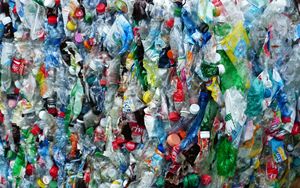(Finance) – Plastic recovered in the sea and on beaches into new “oil” to be used as fuel or to produce new plastics, paints, solvents and countless organic compounds. This is the project developed by Enea researchers which allows the reconversion of over 90% of the material recovered in the sea and on the beaches. This activity was carried out as part of European interregional project Italy-Croatia “NETWAP” on innovative waste reduction and management and the results were published in ACS Sustainable Chemistry & Engineering, the online scientific journal of the American Chemical Society.
“We subjected samples of plastic collected at sea to a particular thermo-chemical treatment called pyrolysis which allows the starting plastic material to decompose – at a temperature above 400°C and in the absence of oxygen – into oil and gas rich in hydrocarbons potentially exploitable for the production of new fuels and chemical products”, he explains Riccardo Tuffi, researcher at the ENEA Laboratory of Technologies for the reuse, recycling, recovery and valorisation of waste and materialswho carried out the research together with colleagues Lorenzo Cafiero and Doina De Angelis.
“To further improve yield and quality – continues Tuffi – we used a catalyst, in turn obtained from the processing of a waste material, i.e. the ash produced by gasification and coal combustion plants. It is an industrial waste whose annual global production amounts to approximately 1 billion tonnes; it is considered a potential cause of environmental pollution while its use for the synthesis of catalysts could represent a step towards the sustainability of production processes”.
Once the process was finished, the plastic sample examined was “converted into hydrocarbons of great economic value (about 87% in light oil and 8% in gas) and the gases produced during the thermo-chemical treatment were have proven to be more than sufficient to support the energy needs of the process (450 °C)”.
The collection and mechanical recycling of plastic collected at sea and on beaches are much more complicated than the treatment of municipal waste, because they are heterogeneous materials composed of many polymers of different shapes and sizes that are difficult to identify and collect. Furthermore, they can contain a considerable quantity of sand, salt, shells, algae and generally also undergo different degradation processes, such as the photo-oxidative one caused by solar radiation.
“All these factors make mechanical recycling an arduous challenge while catalytic pyrolysis can be considered one of the most valid options for the treatment of marine plastic because it is capable of managing large quantities of highly heterogeneous and non-pretreated waste”, underlines the ENEA researcher .
A recent investigation revealed that none of the more than 100 small and medium-sized businesses processing marine plastic waste worldwide have used pyrolysis. “In the near future, however, small pyrolysis plants installed in ports could even produce fuel for boats starting from the plastic recovered at sea”, concludes Tuffi.
